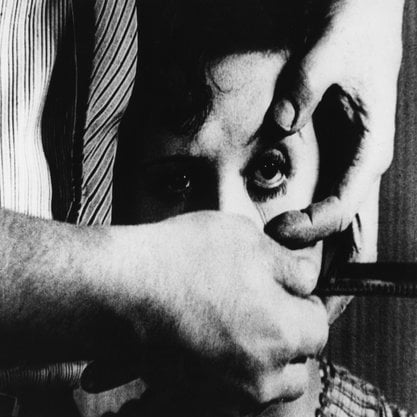Article
Epstein, Jean (1897–1953) By Patrick Pringle, Thomas
Article
Born in Warsaw in 1897 to a Jewish Franco-Polish family, Jean Epstein was an early queer filmmaker, poet, and theorist. Epstein is best remembered for the innovative camerawork and editing techniques in his interpretation of Edgar Allen Poe’s The Fall of the House of Usher (La Chute de la Maison Usher, 1928). Epstein’s engagement with cinematic form ranged from rhythm-based impressionist editing in Coeur fidéle (The Faithful Heart, 1923), to experimental sound work in Le Tempestaire (The Storm Master, 1947), and his writings on the concept of photogénie. Epstein’s theoretical reflections on the interwar period dovetailed with film criticism’s shift toward ontology and attention to the transformative effects of the moving image on perception and knowledge.
Epstein spent his formative years in Switzerland before moving to France in 1917 to study medicine. His interests soon turned toward cinema following contact with Louis and Auguste Lumière. Epstein made forty-four films between 1922 and 1948, all while publishing prolifically. He released three full books and founded the arts journal Promenoir before moving to Paris in 1922. His relocation coincided with the gathering of many impressionist filmmakers and artists in France—including the young Luis Buñuel, who apprenticed on two of Epstein’s films.

